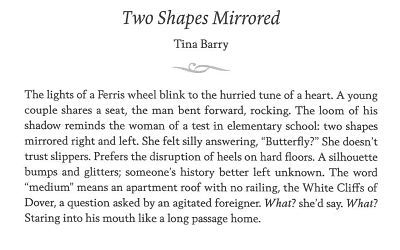
great prose poems
Introduction to great prose poems
Have you ever read a piece of writing that blurs the line between poetry and prose? great prose poems That mesmerizing form is called a prose poem. But what makes a prose poem stand out? Let’s dive into the world of prose poetry and explore some of the greatest prose poems that have left a lasting impact on literature.
What Is a Prose Poem?
Before we dive into examples, great prose poems it’s essential to understand what a prose poem is. Unlike traditional poetry that relies on line breaks and stanzas, prose poetry is written in a block of text—much like a paragraph. Despite its appearance, a prose poem retains the rhythmic and metaphorical essence of poetry.
Blending Prose and Poetry
A prose poem is a unique hybrid that captures the best of both worlds. It combines the narrative style of prose with the lyrical beauty of poetry. great prose poems This form allows writers to convey deep emotions and abstract thoughts without the constraints of traditional poetic structure.
For example, think of a story that reads like poetry—every word carefully chosen, every sentence infused with rhythm and imagery. That’s the magic of prose poetry.
History of Prose Poetry
The origins of prose poetry can be traced back to the 19th century. French writers like Charles Baudelaire and Aloysius Bertrand were among the first to experiment with this form. They used prose poetry to capture fleeting emotions and moments, great prose poems often in a surreal or dreamlike manner.
Since then, prose poetry has evolved and found its place in various literary traditions worldwide. Today, it’s a popular form that allows writers to push the boundaries of language and expression.
Why Write a Prose Poem?
Prose poems offer a unique way to express thoughts that don’t fit neatly into traditional poetic forms. They provide the freedom to explore complex ideas, great prose poems emotions, and stories lyrically. Writers often use this form to:
- Capture fleeting emotions or moments
- Experiment with language and imagery
- Blend storytelling with poetic elements
Famous Prose Poems You Should Know
Let’s explore some of the most famous prose poems that have captivated readers and influenced writers across generations.
Be Drunk” by Charles Baudelaire
Charles Baudelaire is often credited with popularizing prose poetry. His prose poem “Be Drunk” is a call to escape the mundane by immersing oneself in art, great prose poems love, or wine—anything that makes life more bearable.
Analysis
Baudelaire’s prose poem captures the essence of living life passionately. It’s a reminder to find something that intoxicates you—not in a literal sense, but in a way that fills your soul with purpose and joy.
Why It Stands Out
The poem’s rhythm and flow make it feel like a chant. The repetition of “be drunk” reinforces the idea that life is best lived with intensity and passion. great prose poems Baudelaire’s use of vivid imagery and philosophical musings makes this poem timeless.
The Street” by Octavio Paz
Octavio Paz, a Nobel Prize-winning poet, explores existential themes in his prose poem “The Street.” The poem takes readers on a journey through a mysterious street that symbolizes life’s uncertainties.
Analysis
Paz uses the metaphor of a street to delve into themes of identity, isolation, and the search for meaning. The poem’s dreamlike quality draws readers into great prose poems a world where reality and imagination blur.
Why It Stands Out
What makes this prose poem remarkable is its ability to evoke a sense of wonder and mystery. Paz’s use of rich, evocative language transforms a simple walk down a street into a profound exploration of the human condition.
Spring and All” by William Carlos Williams
William Carlos Williams is known for his innovative approach to poetry. In “Spring and All,” he combines prose and poetry to capture the essence of rebirth and renewal.
Analysis
The poem juxtaposes the bleakness great prose poems of winter with the hope of spring. Williams’s prose captures the raw beauty of nature and the cycle of life.
Why It Stands Out
Williams’s use of simple, everyday language great prose poems makes this poem accessible, yet deeply profound. His ability to find beauty in ordinary moments is a hallmark of his work.
How to Write a Prose Poem
Feeling inspired to try your hand at prose poetry? Here are some tips to get you started.
Start with an Emotion or Image
Prose poems often begin with a great prose poems vivid image or a powerful emotion. Think about a moment that resonates with you deeply—a fleeting memory, a dream, or an abstract thought.
Play with Language
Prose poetry is all about language. Experiment with metaphors, similes, and other literary devices. Don’t be afraid to bend the rules of grammar and syntax to create a unique rhythm.
Focus on Flow
Unlike traditional poetry, prose poems don’t rely on line breaks. Instead, focus on the flow of sentences. Use punctuation and spacing to create great prose poems pauses and emphasize certain phrases.
Embrace Ambiguity
Prose poems often leave room for great prose poems interpretation. Don’t feel the need to explain everything. Allow readers to find their meaning in your words.
Why Prose Poetry Matters
Prose poetry is more than just a literary experiment; it’s a powerful form of expression that challenges traditional boundaries.

Breaking Boundaries
Prose poetry breaks the conventional rules of poetry, allowing writers to explore new forms of expression. This freedom makes it an appealing form great prose poems for modern writers.
Capturing Complexity
Life is complex, and sometimes traditional forms of poetry can’t capture that complexity. Prose poetry’s flexible structure allows writers to delve into intricate ideas and emotions.
Engaging Readers
The narrative style of prose poetry makes it accessible to a broader audience. Readers who might be intimidated by traditional poetry often find prose great prose poems poems more relatable.
Modern Prose Poets to Follow
Prose poetry continues to evolve, great prose poems with modern poets bringing new perspectives to this timeless form.
Claudia Rankine
Claudia Rankine’s book “Citizen” blends prose poetry with cultural commentary. Her work explores themes of race, identity, and social justice.
Anne Carson
Anne Carson is known for her genre-defying work that blends prose, poetry, and essay. Her book “Plain water” is a stunning example of modern prose poetry.
Ocean Vuong
Ocean Vuong’s lyrical prose and poetry have captivated readers worldwide. His book “On Earth We’re Briefly Gorgeous” is a testament to the great prose poems power of prose poetry.
Final Thoughts
Prose poetry is a versatile and powerful form of writing that bridges the gap between storytelling and lyrical expression. Whether you’re a seasoned poet or a curious reader, exploring prose poems can open up new worlds of creativity and insight.
Conclusion:
So, why not give it a try? Write your prose poem and see where your imagination takes you. You might just discover a new way to express your thoughts and emotions—one that captures the beauty of both prose and poetry.


